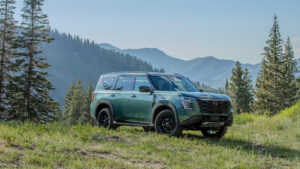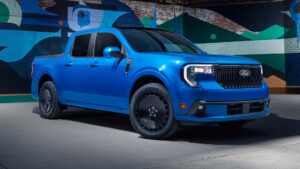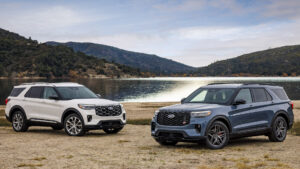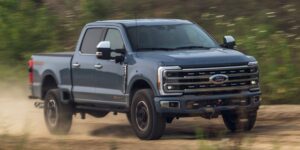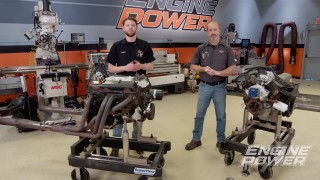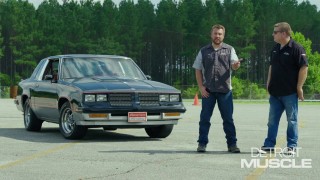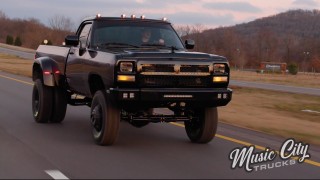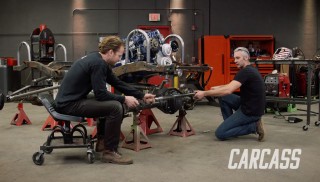New Camera Technology Helps Drivers See Around Corners; Next Super Duty To Offer Ford’s Most Advanced Cameras Yet
New Camera Technology Helps Drivers See Around Corners; Next Super Duty To Offer Ford’s Most Advanced Cameras Yet
New split-view camera debuts on new Ford Edge and Explorer in the United States and China, helping customers see obstacles coming around corners
Next Ford Super Duty to feature the company’s most advanced camera technology yet – up to seven cameras and all-new digital architecture – helping customers see more angles around a truck and trailer than ever before
Ford plans to make rear-view cameras standard on all its North American light passenger vehicles by 2018 and front cameras available on a majority of its vehicles globally by volume by 2020
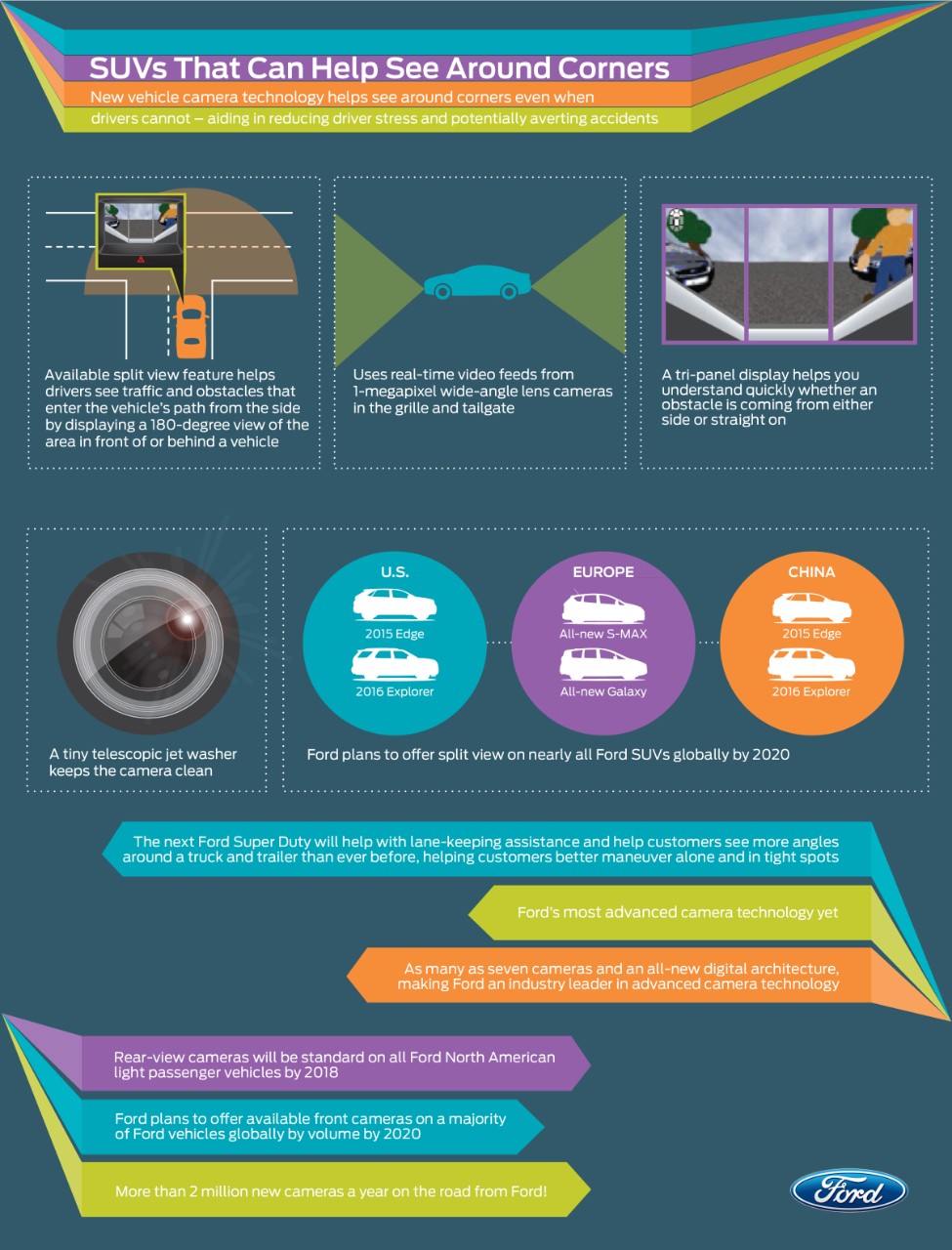
PALO ALTO, Calif., June 23, 2015 – Ford is introducing new vehicle camera technology that can help see around corners even when drivers cannot, aiding in reducing driver stress and potentially averting accidents.
The new available split-view camera feature helps drivers see traffic and obstacles that enter the vehicle’s path from the side by displaying a 180-degree view of the area in front of or behind a vehicle. It is the latest example of how Ford is using camera technology to help make driving easier.
Split view uses real-time video feeds from 1-megapixel wide-angle lens cameras in the grille and tailgate. A tri-panel display in the 8-inch screen helps customers understand quickly whether an obstacle is coming from either side or straight on. Split view is activated at the touch of a button and automatically shuts off when vehicle speed reaches 6.2 mph (10 kph).
Ford introduced split view on the 2015 Ford Edge and 2016 Explorer in the United States and China. Front split view is offered on Edge. Front and rear split view comes standard in the United States on the 2016 Explorer Limited on sale now and Explorer Platinum, on sale soon. Front split view is coming to the all-new Ford S-MAX and Galaxy in Europe, available to order now. Split view will be offered on nearly all Ford SUVs globally by 2020.
A tiny telescopic jet washer keeps the front camera clean on every vehicle with split view. Explorer also incorporates a washer for the rear camera.
More cameras rolling out across Ford lineup
Ford plans to make rear-view cameras standard on all of its North American light passenger vehicles by 2018 – and front cameras available on a majority of its vehicles globally by volume by 2020 – meaning the company plans to put more than 2 million new cameras a year on the road.
Ford introduced rear-view cameras in the 2007 Expedition and now offers an available backup camera in every Ford car, SUV and light truck in North America. Backup cameras are standard in Focus, Fusion, Explorer, Escape, Edge and Mustang.
Next Super Duty to feature Ford’s most advanced camera tech yet
Ford announced today the next Ford Super Duty will offer the company’s most advanced camera technology, helping with lane-keeping assistance and enabling customers to see more angles around a truck and trailer than ever before.
The next Super Duty is featuring up to seven cameras and all-new digital architecture, making Ford an industry leader in advanced camera technology and helping customers better maneuver alone and in tight spots.
The 2016 F-150 has up to five cameras available, the most of any vehicle in the Ford lineup. Four cameras in F-150 are mounted in the outside mirrors, and rear and front of the vehicle to enable a 360-degree view and backup view functions.
A forward-looking camera mounted behind the rearview mirror is used to activate auto high beams and lane-keeping assist, which looks for lane deviations. The driver never sees the image from this camera, but the vehicle’s computer uses the visual signal to operate the rest of the system.
Camera technology also is a key enabler in Pro Trailer Backup Assist available on the 2016 F-150, which helps a customer steer the trailer with a control knob while the truck steers its wheels.
Dynamic Hitch Assist is another F-150 feature that uses cameras. It provides a center sight line in the display that helps the driver properly line up the truck to the trailer to hitch up.
Ford cameras are tested under extreme conditions – beyond what they will endure during a typical vehicle lifetime. Each camera component is subjected to more than 1,000 hours of testing to make sure it can withstand temperature changes, humidity, dust, salt and more. Ford engineers also immerse cameras to confirm the casing does not let water leak in.
Driver-assist features are supplemental and do not replace the driver’s attention, judgment and need to control the vehicle.

PALO ALTO, Calif., June 23, 2015 – Ford is introducing new vehicle camera technology that can help see around corners even when drivers cannot, aiding in reducing driver stress and potentially averting accidents.
The new available split-view camera feature helps drivers see traffic and obstacles that enter the vehicle’s path from the side by displaying a 180-degree view of the area in front of or behind a vehicle. It is the latest example of how Ford is using camera technology to help make driving easier.
Split view uses real-time video feeds from 1-megapixel wide-angle lens cameras in the grille and tailgate. A tri-panel display in the 8-inch screen helps customers understand quickly whether an obstacle is coming from either side or straight on. Split view is activated at the touch of a button and automatically shuts off when vehicle speed reaches 6.2 mph (10 kph).
Ford introduced split view on the 2015 Ford Edge and 2016 Explorer in the United States and China. Front split view is offered on Edge. Front and rear split view comes standard in the United States on the 2016 Explorer Limited on sale now and Explorer Platinum, on sale soon. Front split view is coming to the all-new Ford S-MAX and Galaxy in Europe, available to order now. Split view will be offered on nearly all Ford SUVs globally by 2020.
A tiny telescopic jet washer keeps the front camera clean on every vehicle with split view. Explorer also incorporates a washer for the rear camera.
More cameras rolling out across Ford lineup
Ford plans to make rear-view cameras standard on all of its North American light passenger vehicles by 2018 – and front cameras available on a majority of its vehicles globally by volume by 2020 – meaning the company plans to put more than 2 million new cameras a year on the road.
Ford introduced rear-view cameras in the 2007 Expedition and now offers an available backup camera in every Ford car, SUV and light truck in North America. Backup cameras are standard in Focus, Fusion, Explorer, Escape, Edge and Mustang.
Next Super Duty to feature Ford’s most advanced camera tech yet
Ford announced today the next Ford Super Duty will offer the company’s most advanced camera technology, helping with lane-keeping assistance and enabling customers to see more angles around a truck and trailer than ever before.
The next Super Duty is featuring up to seven cameras and all-new digital architecture, making Ford an industry leader in advanced camera technology and helping customers better maneuver alone and in tight spots.
The 2016 F-150 has up to five cameras available, the most of any vehicle in the Ford lineup. Four cameras in F-150 are mounted in the outside mirrors, and rear and front of the vehicle to enable a 360-degree view and backup view functions.
A forward-looking camera mounted behind the rearview mirror is used to activate auto high beams and lane-keeping assist, which looks for lane deviations. The driver never sees the image from this camera, but the vehicle’s computer uses the visual signal to operate the rest of the system.
Camera technology also is a key enabler in Pro Trailer Backup Assist available on the 2016 F-150, which helps a customer steer the trailer with a control knob while the truck steers its wheels.
Dynamic Hitch Assist is another F-150 feature that uses cameras. It provides a center sight line in the display that helps the driver properly line up the truck to the trailer to hitch up.
Ford cameras are tested under extreme conditions – beyond what they will endure during a typical vehicle lifetime. Each camera component is subjected to more than 1,000 hours of testing to make sure it can withstand temperature changes, humidity, dust, salt and more. Ford engineers also immerse cameras to confirm the casing does not let water leak in.
Driver-assist features are supplemental and do not replace the driver’s attention, judgment and need to control the vehicle.
